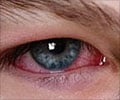Q: Whom should you consult for pinguecula?
A: You should see an eye specialist/ ophthalmologist if you have a pinguecula.
Q: Is pinguecula cancerous?
A: Pinguecula is not cancer, but if you notice that the pinguecula is growing rapidly or changing in shape, size or colour, consult your doctor.
Q: Are lubricant eye drops safe?
A: Lubricants that are preservative free or have stabilised oxy-chloro complex as a preservative are safe to use on a long term basis
Q: Are there any complications of pinguecula surgery?
A: Complications are very rare, and may include redness, scarring and foreign body. Recurrence does not usually occur.
Q: How is Pinguecula different from Pterygium?
A: Both pingueculae and pterygia are degenerative conditions of the conjunctiva and can co-exist. A pinguecula can evolve into a pterygium. A pinguecula is due to hyaline deposition in the conjunctival tissue, whereas a pterygium is a growth of the conjunctiva, that invades and grows on to the cornea. A pterygium can cause diminution of vision either because of astigmatism or because of obstruction of the pupillary area. Pterygia have a high propensity for recurrence after surgery.
Q: Can pinguecula cause age related maculopathy?
A: No, pingueculae do not cause age related maculopathy, but patients with pterygium or pterygium surgery have been shown to have a higher risk of developing age related maculopathy.










